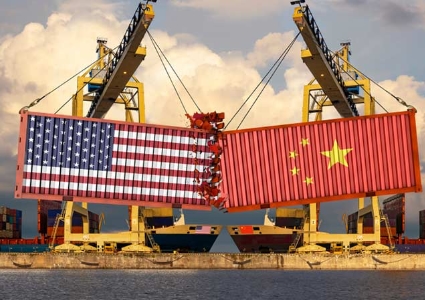Polling

Suggest an important issue not listed in this sub-category (). (Maximum 60 Characters)
Trade war

Trade tariffs impose a cost on products that cross a border, thus raising prices within the country that imposes the tariff. In 2018, President Trump began levying tariffs on China to force it into changing their "unfair trade practices”. But it wasn’t only China we imposed tariffs upon. Other nations including Canada, Japan, the European Union, India and Mexico have all been targeted. Solar panels, washing machines, steel and aluminum were among the first products tariffed, often for reasons of “national security”. China strategically applied its own tariffs on manufactured goods and crops produced in areas with large numbers of Trump supporters.
Advocates claim retaliation by trading partners, and the prospect of further escalation, pose significant risk the world’s economy. American consumers were hurt by higher prices, but our farmers were hit especially hard. There were 595 family farm bankruptcies in 2019, up 20% from the year before. By 2020, our Treasury had paid nearly $44 billion to bail-out farmers and help them overcome the effects of these tariffs. The trade war also significantly damaged the economy and industrial output of Communist China. The Coronavirus pandemic and the trade war are causing many American companies to shift supply chains to other Asian nations such as Viet Nam. Advocates claim these events could lead to a US-China trade decoupling.
After the trade war escalated through 2019, the two sides reached a tentative agreement in 2020 when the Trump administration said China committed to buy an additional $200 billion worth of American exports in 2020 and 2021. However, this agreement expired in 2021 with China failing by a wide margin to purchase American goods and services as agreed, and the trade war continues today.
Pending Legislation: S.153 - Fair Trade with China Enforcement Act
Sponsor: Sen. Mark Rubio (FL)
Status: Senate Committee on Finance
Chair: Sen. Ron Wyden (OR)
Advocates claim retaliation by trading partners, and the prospect of further escalation, pose significant risk the world’s economy. American consumers were hurt by higher prices, but our farmers were hit especially hard. There were 595 family farm bankruptcies in 2019, up 20% from the year before. By 2020, our Treasury had paid nearly $44 billion to bail-out farmers and help them overcome the effects of these tariffs. The trade war also significantly damaged the economy and industrial output of Communist China. The Coronavirus pandemic and the trade war are causing many American companies to shift supply chains to other Asian nations such as Viet Nam. Advocates claim these events could lead to a US-China trade decoupling.
After the trade war escalated through 2019, the two sides reached a tentative agreement in 2020 when the Trump administration said China committed to buy an additional $200 billion worth of American exports in 2020 and 2021. However, this agreement expired in 2021 with China failing by a wide margin to purchase American goods and services as agreed, and the trade war continues today.
Pending Legislation: S.153 - Fair Trade with China Enforcement Act
Sponsor: Sen. Mark Rubio (FL)
Status: Senate Committee on Finance
Chair: Sen. Ron Wyden (OR)
Poll Opening Date
November 4, 2024
Poll Closing Date
November 10, 2024
Democracy Rules respects the privacy of your information.
See PRIVACY STATEMENT
See PRIVACY STATEMENT